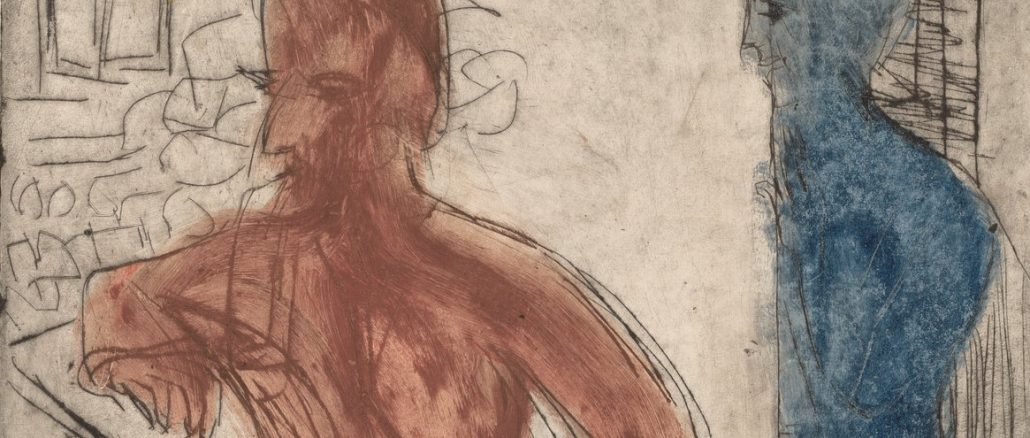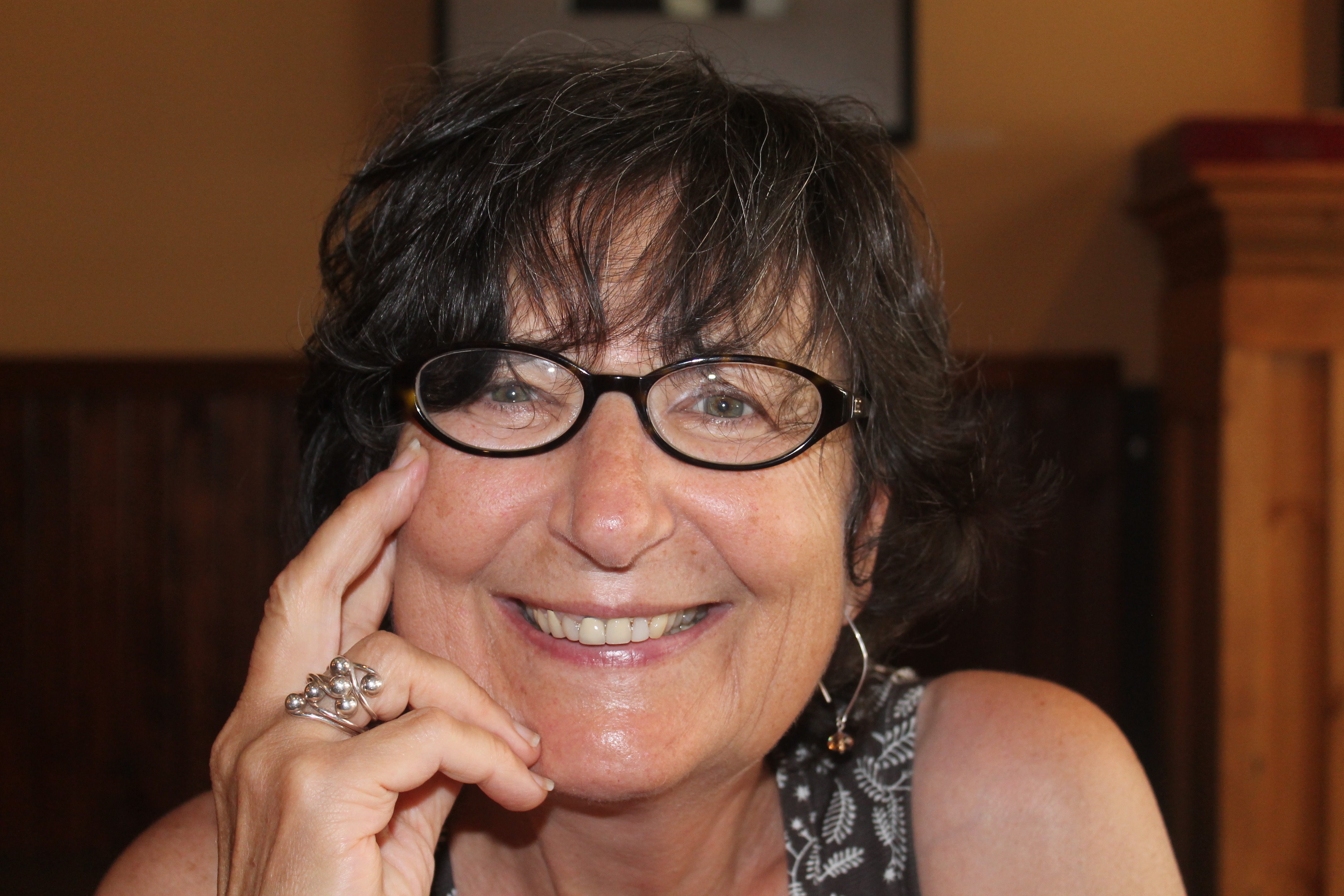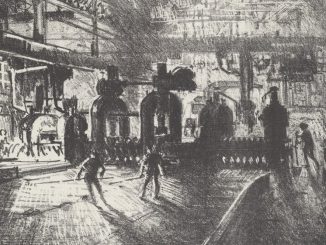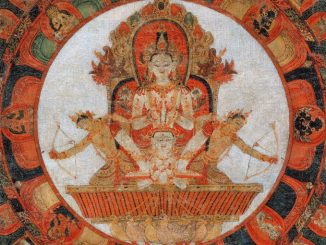
My father, born in Hungary in 1906, was often mistaken for my grandfather. Nowhere was the cultural divide between us more pronounced than on a trip to Budapest in 1969. We both let each other down, but it would take decades for me to forgive him for being mortal.
When my father opens the front door on a sight that astonishes him, it is 1969 and I’m fifteen, he sixty-three. Our half of the duplex contains two units and a separate entry basement that serves primarily as our TV room. It also shelters—to a point—the piano I abuse for forty-five minutes daily. I would become more proficient at gauging the exact amount of time that elapsed in my practice period than I would at playing Scarlatti sonatinas and ever more tiresome scales. As a result, fifty years in, I still gloat about my unerring sense of time while another piano sits dumbly on our premises. In the far corner of my childhood basement, behind my sullen back at the piano stool is the stolid walnut desk purchased for my father at a dusty used furniture store on Ontario Street East. For the ten-year-old accompanying her mother on the birthday gift-buying expedition there was a sense of slumming it outside the crisp boundaries of our new suburb. It seemed somewhat of a back-handed gift to offer my father a used desk to put into our contemporary faux-wood panelled rec room. Of course, the non-ersatz solidity was exactly what my mother was looking for at a price we could afford. At least, I begged, already honing a Montrealer’s eye for chic, no curlicues even if they would remind Daddy of the Victorian furnishings he’d grown up with in rural Hungary. As a result the desk we chose was too nondescript to boast any style. It would suit my father’s pared down expectations.
My mother and I used the basement more than he did, watching television every evening, and for my odious piano regime after school, but he made an occasion of going downstairs on the weekends to write long airmail letters to friends and family abroad. He’d declare he was on his way down and to whom he’d be writing and there was a sense of consequence about the matter as though he were about to commune with royalty. In April, though, the desk took on a burden of activity that papered its usually bare surface with the documents of my parents’ tax returns. To my father, all government officials were equal in potentially pernicious authority, requiring the utmost care in one’s dealings with them, a legacy of the anti-Jewish measures during the years leading to the war, compounded by the horrors that followed.
Born in Budapest, I was nonetheless a North American girl who showed up in the city of my birth that summer of ’69 wearing skirts so short I couldn’t raise my arm to the the overhead bar of the bus we took from my father’s aged auntie’s apartment to the government-run handicraft outlets on downtown Váci Útca. I would much rather have been home in Montreal listening to the soundtrack of Hair, and Steppenwolf reminding me I was never destined for dour, Soviet repression but rather “Born to Be Wild.”
Unbeknownst to my parents, I had, that spring, exercised this birthright by showing up on the street where a boy I was interested in lived. My girlfriend and I found him playing street hockey like a kid in front of the address we’d looked up in the phone book. It was a bold move for a girl who had been taught to be demure, inaccessible but ultimately receptive. According to my mother, the man takes and the woman gives, her complete imparted wisdom on male-female dynamics. We all knew without being told that nice girls, at least up until our time, didn’t put out.
It’s a few days after I personally delivered my message of availability to the boy two bus rides away. My father doesn’t at first believe what his senses have told him as he shuts the door, turning the clip on the door knob for emphasis. At least the slide of the dead bolt has not reinforced the insult. “Who was that?” my mother calls from the kitchen, while I charge out of my bedroom yelling, “Is someone at the door?” My father stands in the hall, arms hanging helplessly, and with an almost puppyish raising of his thick, patrician brows. After some inarticulate mouthing,“I don’t know,” is his bewildering reply. It should be stated that in our household everybody always knows everything. Even I the youngest who is no longer the littlest but still treated as such uses a tone of informed certainty. My father is a generous person who keeps peppermints in his pockets to hand out to the neighbouring children as he shovels the walk or mows the lawn. He sends money to Israel and to the relatives behind the Iron Curtain. His old-fashioned manners make him courteous to a fault according to my mother, especially when he invites the plumber to sit down to a cup of tea in the living room no less, much to the tradesman’s discomfort. So it is unclear whether his reply, “I don’t know,” refers to himself, as in he doesn’t know who he is by this act of rudeness, or if it applies to the discreet taps continuing from the stairwell.
I fling the door open on the tall, absurdly skinny reed I had outrageously invited over. My mother wipes her hands on her apron trying on a few expressions, not immediately finding one fitting the occasion, while my father fails to reach into his pocket for a peppermint though his hand has gravitated there by habit. Taking advantage of the undreamed of luck provided by the pause, I lead the boy into my room.
I have an older sister who, wedded at age twenty, was in the third quarter of her first year of marriage when the boy who became my first boyfriend knocked at our door. In fact, my sister’s courtship had lasted five years, so she too had been fifteen when a boy first came calling. A kid who was by nature a pest, I was easily enlisted to follow the two teenagers on their trysts to the school grounds where ostensibly the boy was to teach my sister to hit a tennis ball against a wall. I don’t think my parents considered her chastity seriously at risk; it was propriety they hoped to maintain. The fights I remember that came later as marriage hove into view, were about my sister’s boyfriend not being Jewish, and if my parents wished to push their point they’d harp on his poor social graces, not that he was crass, but he was practically mute compared to our crowd that ran at the mouth—well, compared to anybody. I don’t remember my father having meltdowns about my sister becoming a woman, a term of the day. I may have been the youngest, privileging my status in the heart of the male parent, but there was no objective reason to believe that my father in any way loved me more.
Yet the violent emotion he brought to my coming into my sexuality was, I think, out of proportion to the provocation. My sister had ‘visited’ with her boyfriend in that same bedroom, also with the door open. Even I didn’t have the nerve to shut it. I don’t recall my father patrolling the hall outside her room like a pacing Rottweiler the way he did while my boyfriend and I tried to get in some necking. As his feet approached, we bolted upright; when they reluctantly passed we sank back onto the still warm bedspread. Needless to say the interruptions only heightened the charge between us. It would have served my father right, I thought, if he’d felt a shock while lingering in the open socket of the threshold, not quite able to barge in.
I suspect he harboured the hope that the family trip to Europe that summer would be long enough—six weeks—to nip the fledgling relationship in the bud. As absence does, it intensified my longing. Quite obviously the hard earned dollars spent on ferrying me over the ocean had been wasted. In London, in Paris, in Vienna, the only site I was interested in checking out was the central post office where a letter might be awaiting me care of General Delivery. Either way, I’d languish in the hotel room all afternoon, mourning if I had received nothing, deep in a many-paged response if I had. By the time we reached Budapest, my father must have run out of patience.
Here’s the nub. The question of patience. Not a word weighted with emotion yet it’s taken 1,500 of them here before I could lay it down in print. A word that makes me want to snatch it back, as if revoking the word is all it would take to spare us. From my earliest memories and the time the English language grew in my mouth I would have described my father first as a patient man. Not a Jewish, Hungarian, immigrant, or Holocaust-surviving man, or family, loving, older, or story-telling man. He was a man of great patience. He needed to be to keep peace with my quick to ignite, quick to judge or condemn mother, and his two mouthy, quarrelsome daughters. Yet, that summer, unwittingly and unintentionally I tried my father’s patience.
The pantheon of my father’s weekend correspondents included three life-long friends, in fact the only friends I knew my father to have outside his family both in Canada and abroad. He had met all three at the Academy of Agronomy in the city of Debrecen during the period of numerus clausus that had targeted Jews in the 1920s, making Hungary cutting edge as it were in the enactment of European anti-semitism between the wars. Wili bácsi, Laci báci, Zoli bácsi and their wives were in the crowd greeting our train when it pulled in at Budapest’s Keletipája Udvar. In our twelve years in Canada, my family of four had not acquired a combined circle of acquaintance equal to my father’s surviving kin and connections gathered on the station platform. The fifteen year-old looked sideways at her old, plodding, usually out-of-place sire, seeing him for a brief moment as he might have appeared in a sepia-coloured print with a be-medalled sash across his chest. During our two weeks in Budapest, his dance card was full from morning to night, a perpetual round of invitations to four-course meals and endless cups of ’preszo served with slices of dobos torta. Amongst this brethren I became known as the pretty daughter, my married sister the nice one. Unlike my sister who has always garnered compliments, this was the one time in my life I enjoyed attention for my round-cheeked looks. The swap for me from nice or good to pretty was an easy trade, opening the door to possibilities beyond my parents’ intentions for me.
I had been raised on stories of the exemplary natures of my father, his two brothers who died during the war, and the three friends of the station platform. In my mind, picturing them on a Hollywood set, they were cast less as the bácsis, or uncles, and more as the six Magyar amigos. I imagined five more or less similar versions of my patient, honourable father, all wearing felt fedoras. Zoli bácsi was the closest match; Laci bácsi a somewhat irritable second, Wili bácsi a bombastic spouter of pronouncements, who made my family of know-it-alls seem amateurs by comparison. My father loved this man? Wili bácsi was my first exposure to someone who had experienced vicious racism, then turned the same weapon against another social group. This emerged as I heard him opine about the race riots that had taken place in US cities in the last years. Had he read about these riots in the not-so-objective state press, I not-so-innocently asked? My father shot me a look. Undaunted, I persisted. How many Blacks had Wili bácsi made the acquaintance of? One thing led to another until I burst out that of course I would marry a Black man if we loved one another.
“Marry a Black man, preposterous,” my father grumbled on our way back to the aged auntie’s.
“Why not? Why shouldn’t I if he were the kind of good, decent person, a man like you, say, and I loved him?”
“Why shouldn’t? Why shouldn’t? Have you lost your mind?”
Who was this Wili bácsi that he could be such a bad influence on my father?
“Never,” he seethed, “have I ever been so mortified!”
“What, not even when that anti-Semite at the Academy slapped you in the face?”
I had such confidence in my father’s doting love of me, such faith in my knowledge of his patient, giving character, such reliance on his intelligent appreciation of wit. My mother told me to shut up before my father had a stroke. And yes, for the first time I saw something in his face I didn’t recognize, a flicker below the surface of, simply put, someone else.
Children are loathe to recognize weakness in a parent. This reluctance runs the gamut from intolerance of physical decline, to emotional vulnerability, or intellectual limitation. It shows up as frequently in adult offspring as in self-absorbed teenagers. A young child who senses a parent’s frangibility feels the chill threat of the elements. An adolescent or adult is more likely to be irritated or fall into a rage. In my case, I went blank. A blankness that spread like an analgesic from my head to my heart. It’s taken me almost five decades to excuse my father, dead now a quarter century, for being human.
Few visitors to Budapest pass up an excursion to Gellért Hill from which, on the Buda side of the Danube, one is treated to panoramic views of both Pest and Buda. By the time we had climbed past couples making out on benches, admired the vistas and descended, the feet I had found fetching that morning in the sling-back heels I insisted on wearing because they were the best complement to my mini-dress, throbbed. I took the pumps off on the Liberty Bridge, insouciantly swinging them from their straps as we crossed back over the famous river.
“Put them on, now,” my father hissed behind me in the heavily-accented English he’d left behind on the Orient Express. I swerved to respond while continuing backwards, a saucy move I assumed would prove irresistible. “You’d rather my feet start bleeding just because of what a bunch of strangers might think?”
He said nothing at first then surged by me, sputtering. “Fine, you can walk by yourself but I won’t be seen with you.”
My father loved being seen with his three well-dressed females, but he would repudiate me once more on this holiday when in Vienna my mother and I had a little too much of the young, un-aged summer wine served up in a beer hall. Rarely compatible, we tripped along, inclining our heads towards each other, tittering as we skirted a car coming at us on the street. “Disgusting,” my father scorned, “nothing but a pair of drunken women.” It would turn out that when my father referred to me as a woman he meant nothing good by it.
My father and his two younger brothers came of age on an affluent country estate that relied on the work of Hungarian peasants. After the boys reached puberty, they were given a discreet outbuilding to which they might repair to satisfy their manly needs. This included ‘entertaining’ by which today we would mean exploiting peasant girls who lived with their families and consequently were also employed on the property. My father described the difference in character between Feri, his next-in-age brother, and himself in this way: whereas my father had his preferred girl and ‘stayed true to her’, his brother said he didn’t like to have a girl hang around him long enough to start to smell, or perhaps to leave her scent on him. I can’t remember which and it hardly matters since both are regrettable. As a young person I forgave my father’s behaviour given its cultural context and viewed it as another example of his gentle side. Now I deem it only marginally better than his brother’s. He did not condemn Feri bácsi. He had merely alluded to their differences. He may even have given a little humorous snort as he said it.
When I was an angry girl of seventeen, I dropped out of high school and eventually got a job with a Hungarian man who, like my parents, was a refugee of the 1956 revolution. He ran a small business of buying glasses frames from wholesalers and distributing them to opticians and optometrists. I was his stockroom clerk and sole full-time employee. When business picked up, he would hire a sales rep on an as needed basis. Because we spent hours in each other’s company with little to do, I heard more than was necessary of his life’s story. He told me of following a beautiful woman who had given him the eye back in Budapest before the war. He described her in elaborate detail, her glossy hair under a wool beret, plaid coat, rust-red low-heeled shoes, her doe-like legs, etc. Into a stairwell he eagerly pursued her, but once clinched together behind closed doors he was overcome by a powerful odour. Her sex, he said, stank of corruption.
I recoiled, literally feeling struck by the misogynistic mouthful. Wasn’t the telling of this anecdote to a seventeen year-old girl not as offensive in its way as the conflicted description itself? I knew my boss was fond of me in a fatherly and not-so-fatherly way. I felt as though he had jumped at me from across his desk which, months later, he did.
The bad smell raised by my uncle and my boss stayed with me as an emblem of how Hungarian men of my father’s generation regarded women. A sampling too minuscule to be meaningful perhaps, but it was reinforced by others in my parents’ social acquaintance, by the change in their behaviours once their daughters and their friends were old enough to attract boys. Good fathers turned into crazed fathers. Funny, facetious bácsis made passes at girls who just a year or so ago they had chauffeured to amusement parks and innocently indulged in cotton candy. Humbert Humberts one and all, for whom a girl turned woman, a girl hanging around long enough to become a woman, a woman in other words was a girl gone bad in an over-ripened sense, inherently spoiled.
Two things changed in me towards the boy over the eleven months we were together. The more “into” him I got—the more obsessive, if you would, my attachment—the less responsive I became when we made out. I don’t remember this as a sudden change but one that crept over me, not unlike the metamorphosis overtaking my father. Did I notice that sometimes his naps were longer than usual on weekends, or that he stayed home from work once in a while so he could sleep most of the day? If I did, it didn’t register. My father was older than anybody else’s dad and different in many ways. We are all central to ourselves naturally, but the self-centredness of youth can be extraordinary. It was in my case. I do remember that every so often over the years before I left home my mother would say, “Your father had another spell yesterday.” He had taken to passing out in the street occasionally, often enough to warrant the word “another.” Afterwards, he’d have a much longer than usual sleep. He never appeared injured following these collapses and resumed his activities as before. Did I make much of it? The question is rather, did these spells concern me even a jot? I am ashamed to say that I felt nothing. Nor did I feel anxious or upset when my parents, who learned to drive too late, my mother in her fifties and my father over sixty, had an accident that mercifully totalled the weapon they had taken on the road while leaving them with minimal damage. They were okay? Okay, fine then, and on I went with my own preoccupations. Even at nineteen, in college, living independently I had yet to attain much discernible empathy for those who had raised me. My father had prostate surgery at the time, and all I recall feeling was chagrin at having to waste my precious time visiting him in hospital. I can only conjecture that in some regards my heart had gone numb.
Apparently not the only part. What could have induced me to take the boy down to the basement? Perhaps desperation. I was desperate for my switch to flip back on. I was desperate to stay in love, to be in love, desperate for love not to end. And why so desperate at age sixteen? He should have been just the first of a long line, like the boys fluttering like streamers from the beautiful kite who was my best friend. Why could I not accept that the boy who had played coy when I initially got hot and heavy was a boy ill-suited to my needs and that I’d best move on? Instead, I clung more tightly while the last spark of desire fizzled out.
There was a flip-open sofa bed in the basement. My mother would stretch out on it to watch the movie of the week. The couch must have been already open. Perhaps my girlfriend had spent the night, and after being up most of the wee hours dancing to and acting out Jesus Christ Superstar, I hadn’t gotten around to putting the basement back in order. Perhaps that’s what gave me the idea. A desperate measure. I took the boy downstairs so we could neck in peace.
Instead, I suffered. Try as we might, I no longer felt anything in my body while my heart yet longed for this boy. Upstairs, my father started to go crazy. Why should this have taken me by surprise? On what planet had I taken up residence? My father’s irascibility had become a regular feature in his relations with all of us, but no one nettles as piercingly as a child of any age who has detected parental blood in the waters and refuses to accept his demise. I had gone down to the basement to be with my boyfriend behind closed doors. His daughter. A daughter of the sacrosanct lineage sacrificed on the pyre of brutality. Daring openly to sully herself. There was a very bad scene. My father said things I had never heard him say about anyone. He spat words I’d never heard from his lips. He went so far as to raise a fist. Stunned, all I could think of was the ironic injustice, as I hadn’t enjoyed a moment of the unconsummated transgression.
Who knew? Who knew how frail even the most presumably immutable bonds can be? Throughout my childhood, my father used to tell me that I was capable of becoming anything. How much had idealization on both our parts infused our love? Were we not destined both to fall? I fell for an unripe boy just at the moment that my father began to change from the indulgent parent I had adored to a man confounded by his mortality. I took all my delicate eggs, transferred them to a very flimsy basket, then couldn’t figure out why so many broke.

Most recently, Judith’s personal essay “Testifying” was published on October 30, 2017, by Another Chicago Magazine, and has gone on to be included among the ‘Notable Essays of 2017’ in The Best American Essays 2018. Another piece, “In Sickness and in Health,” was published in STORGY Magazine on March 14, 2018. “Red” appeared on May 15, 2018, in Barzakh Magazine.
Featured image: Ernst Ludwig Kirchner, “Peasant and Girl,” color etching printed in black, red, and blue, 1921, Gift of Ruth Cole Kalnen, National Gallery of Art.


